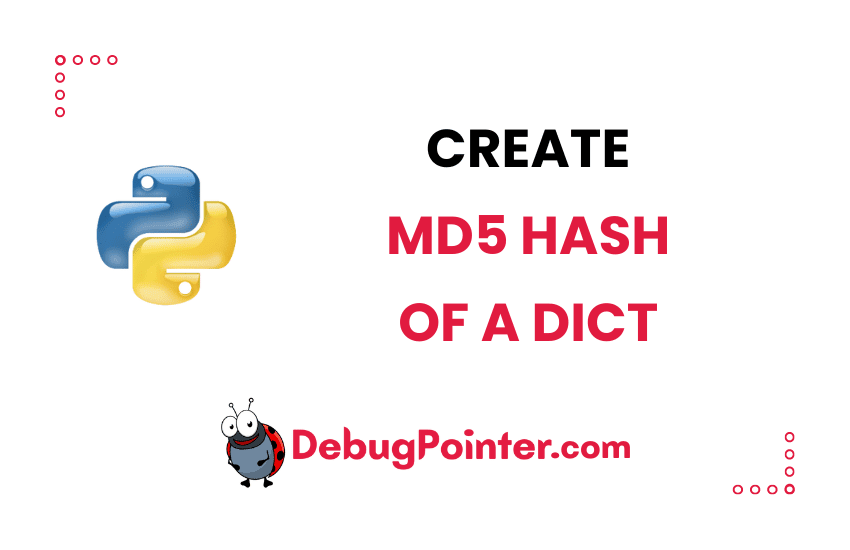As a Python enthusiast and a firm believer in the power of data integrity, I’m always on the lookout for ways to ensure the security and reliability of my data. One powerful technique that I frequently rely on is creating an MD5 hash of a dictionary in Python. This method allows me to generate a unique identifier for a dictionary’s contents, making it ideal for data validation and comparison. Today, I’ll guide you through the process of creating an MD5 hash of a dictionary in Python, empowering you to enhance the integrity of your data with ease.
As we’ve seen in earlier posts, you can create an MD5 hash of a string and generate a hash in string type.
Creating an MD5 hash of a dictionary in Python
A python dict is a data structure that stores key-value pairs. The keys are used to access the values.
Example –
person = {'name' : 'Vamana', 'age': 20}But, what if you had to create an md5 hash of the person dictionary above? We can do it by first converting the dict to string format. Note that, a dictionary doesn’t maintain the order of keys (key:values), so the value can change randomly when you try to use it as a complete dictionary. For this reason, we will sort the keys and then convert it to a string, to make sure that the order of keys is consistent always. We do this by passing sort_keys=True as the second parameter to json.dumps.
Here is an example with complete code of the above mentioned implementation.
import hashlib
import json
person = {'name' : 'Vamana', 'age': 20}
hash = hashlib.md5(json.dumps(person, sort_keys=True).encode('utf-8')).hexdigest()
print(hash)The output of the above code will return a MD5 hash of the stringified version of the dict-
f969336be6f2b55ced0bd39d3fc9a167I’m glad that you found this article to create MD5 hash of a dict useful. We’ve reached the end of our journey into creating an MD5 hash of a dictionary in Python, and I must say it has been an enlightening experience. By harnessing the power of the hashlib library, we’ve unlocked a valuable tool for data validation and integrity checks. Armed with this newfound knowledge, you can now confidently ensure the reliability and security of your dictionary data. Remember, data integrity is of utmost importance, and leveraging techniques like MD5 hashing allows you to maintain the trustworthiness of your data. Happy coding and may your hashes always be secure!
